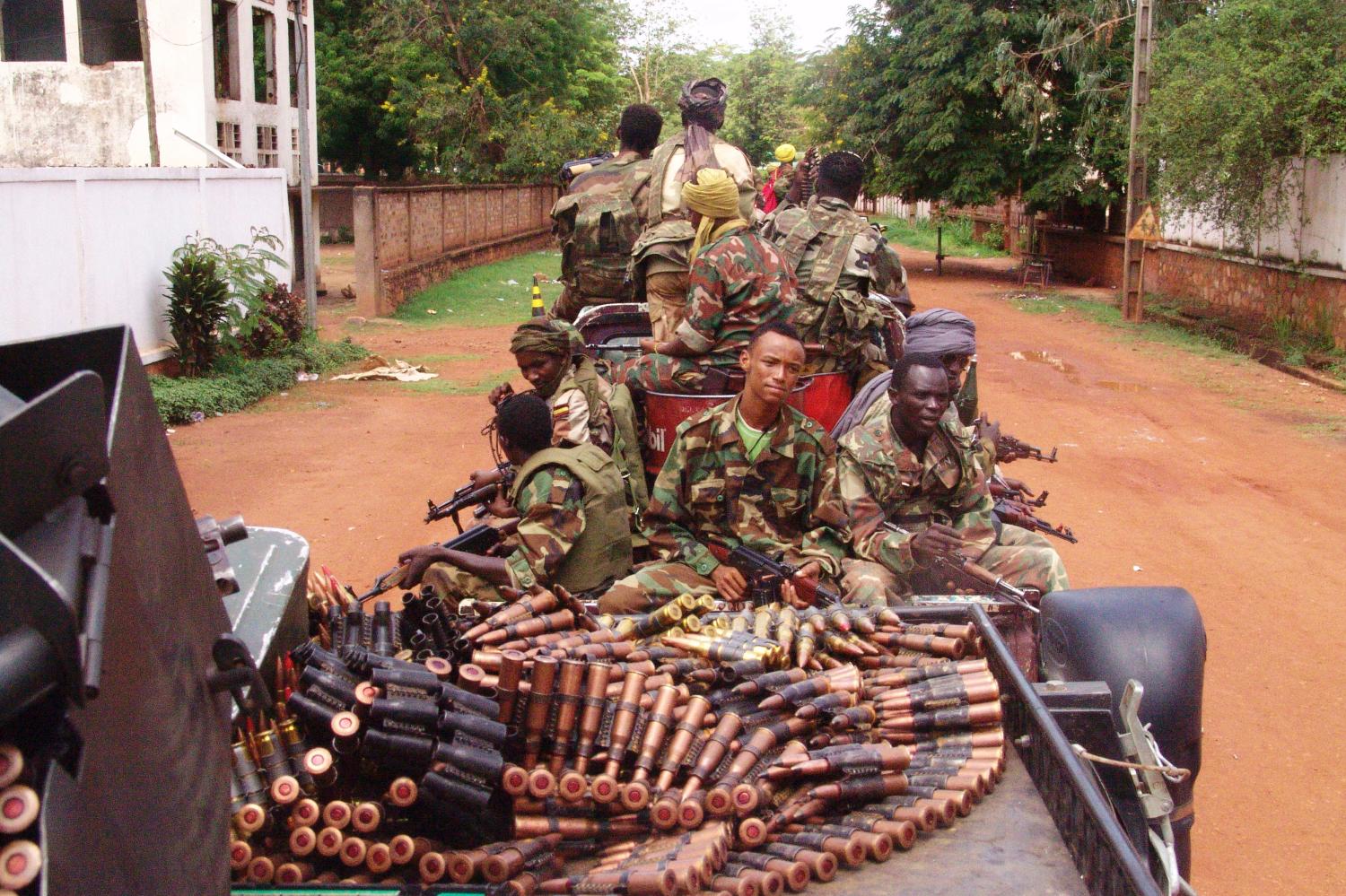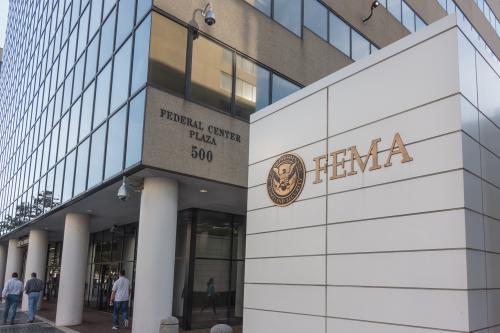African countries face various security challenges from violent extremist organizations, which are inextricably linked to U.S. national security. Lesley Anne Warner analyzes the threats and proposes a proactive engagement for the U.S. to take forward with Africa to promote peace and address security concerns.
This chapter is part of Top Five Reasons Why Africa Should Be a Priority for the United States. Read the full report here and tell us why you think Africa matters to the U.S. Join the conversation on Twitter using #AfricaMatters.
The Priority
In a complex and globalized security environment, having strong and capable partners on the African continent to tackle transnational challenges advances U.S. national security interests. In this regard, the growing capabilities of African countries to respond to regional security challenges are an asset to the United States. Globally, African nations account for 10 out of the top 20 contributors to United Nations peacekeeping missions. Furthermore, African countries and the regional organizations to which they belong are starting to play a larger role in leading peacekeeping operations on the continent through the African Union Mission in Somalia (AMISOM), the AU-UN Hybrid Operation in Darfur (UNAMID) and the possible African-led International Support Mission in Mali (AFISMA).
These positive developments aside, U.S. efforts to advance peace and security in Africa face several challenges. Unable to monitor, interdict and prosecute predatory actors in their sovereign territories, many African countries face localized security challenges that hold the potential for global reach. Transnational organized crime such as the illicit arms trade and narcotrafficking empowers predatory actors and increasingly corrupts government and military officials in West Africa. Piracy and armed robbery at sea in the Gulf of Guinea and off the coast of Somalia affect local livelihoods and are detrimental to global maritime commerce. Violent extremist organizations (VEOs)—such as al-Qaida in the Islamic Maghreb, Ansar Dine, and the Movement for Unity and Jihad in West Africa (all in northern Mali), al-Shabaab in Somalia, and Boko Haram in Nigeria—jeopardize human security and threaten to ignite communal violence. As demonstrated by Ansar al-Sharia’s September 2012 attack on the U.S. consulate in Benghazi, VEOs pose a threat not only to the security of U.S. partners in the region, but also to U.S. citizens. Intrastate conflict remains a security challenge, with countries like the Central African Republic, the Democratic Republic of the Congo, Mali and Sudan presently facing new phases of unfrozen, previously unresolved conflicts. And while Côte d’Ivoire, Liberia and Sierra Leone have transitioned from war to peace, similar transitions remain fragile in Libya, Somalia and South Sudan.
Why is it Important for the U.S.?
The peace and security of the African continent is increasingly important to the United States for several reasons. First, the security of Africans and of the countries in which they reside can have an impact on global security and U.S. interests. African governments incapable of maintaining sufficient control over their territories or of fulfilling the basic needs of their populations can create a permissive environment for criminal or terrorist networks. Second, since the establishment of the U.S. Africa Command (AFRICOM) in 2008, the United States is playing a greater role in African security—perhaps in spite of the Department of Defense’s recent efforts to rebalance toward Asia. One of the cornerstones of U.S. military engagement in Africa entails assisting African countries in the management of their own security challenges through partner capacity building. In an era of declining defense budgets, working with African countries in addressing security challenges on the continent is an effort to prevent conflict and share the cost of global security. In principle, this cooperation ultimately enhances the United States’ ability to ensure its own national security. Finally, from a whole of government perspective, the security of African countries can either support or undermine U.S. investment in other sectors such as trade, good governance, health and education.
The Opportunity for the U.S.
The United States’ ability to advance peace and security on the continent is contingent on the convergence of interests with African partners and their willingness to work with the United States on mutual security challenges. Accordingly, Congress and government agencies should consider the following steps:
- Rebalance U.S. engagement with African countries so that it is more proactive than reactive. The United States requires a more holistic approach to African security—one that does not solely lie within the domain of the Department of Defense. Efforts to prevent and mitigate conflict cut across agencies and often address some of the root causes of conflict in Africa. If the United States is ever to depart from responding to one crisis after another in Africa, it is imperative that Congress better resource agencies that have prominent roles in conflict prevention, such as the State Department and USAID.
- Establish multi-year funding authorities for building partner capacity programs. Moving away from episodic engagements with African countries towards sustained security partnerships will require that the authorities that govern security cooperation become more flexible and streamlined. This move should help improve the planning of U.S. military engagement on the continent and work towards facilitating interagency coordination.
- Address the deficient capabilities of African law enforcement personnel. The training of foreign law enforcement personnel by the United States is restricted by Section 660, an amendment to the Foreign Assistance Act of 1961. Yet, in terms of providing security for individuals and communities in Africa, police forces are often the soft underbelly of African security sectors. Congress should either revisit restrictions against U.S. engagement on police reform or should work with European allies to remedy this capacity gap.
- Continue to support regional and sub-regional mechanisms for conflict resolution. Although the Economic Community of West African States (ECOWAS) has taken the lead in responding to the crises in Mali, its efforts have been impeded by limited crisis response planning capabilities, accompanied by the insufficient military readiness of several troop-contributing nations. These deficiencies demonstrate several opportunities for U.S. assistance to regional and sub-regional organizations.
- Use ongoing insecurity in the Sahel as an impetus to re-evaluate the scope of U.S. military engagement on the continent. The crisis in Mali and the difficulties faced by African militaries in responding demonstrate that U.S. engagement with African militaries may be necessary but insufficient for stability. Moving forward, the U.S. should ensure that its engagement in Africa bolsters non-military pillars of stability and prioritizes defense sector reform—even if these efforts occur at the expense of tactical or technical military capacity-building programs in the near term.



